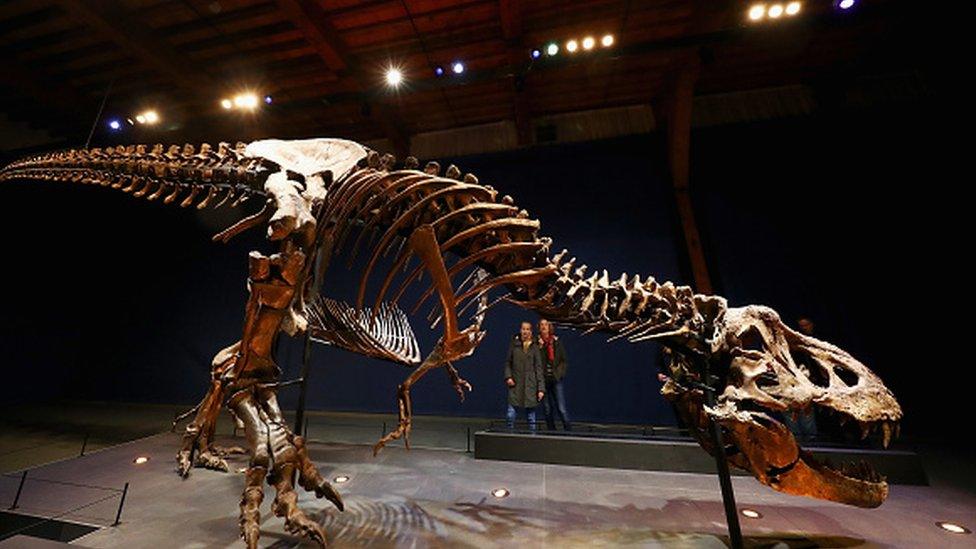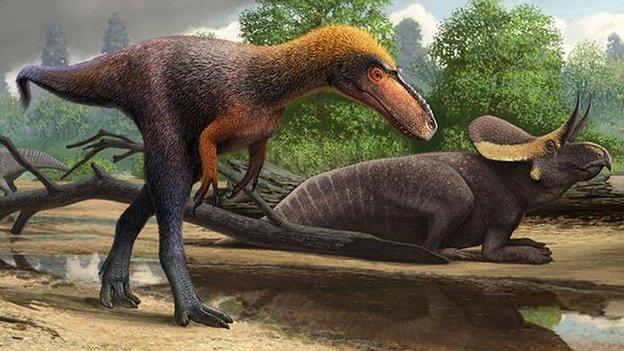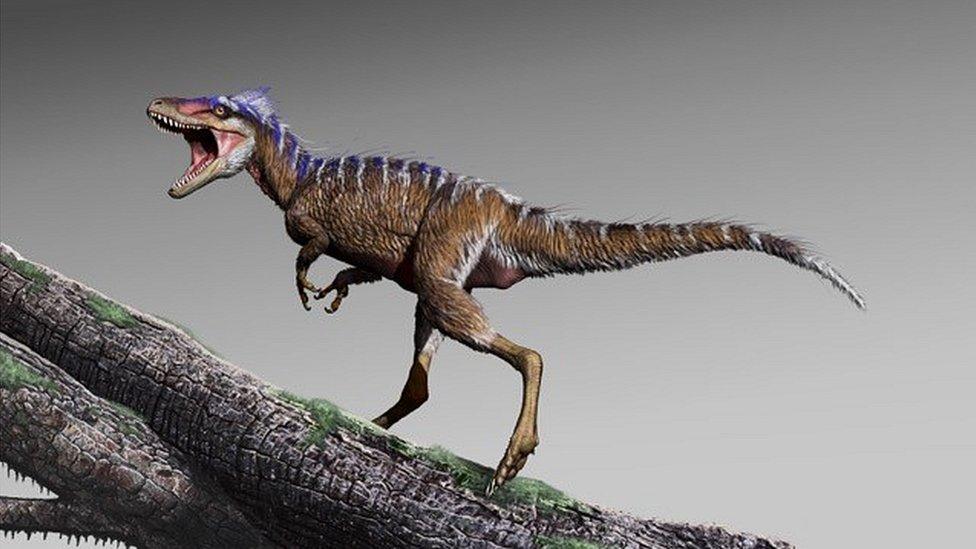Tyrannosaurus species named 'Reaper of Death' found in Canada
- Published

The predator's name - Thanatotheristes degrootorum - translates to "Reaper of Death" in Greek
A new species of tyrannosaur that stalked North America around 80 million years ago has been discovered by scientists in Canada.
The dinosaur lived in the late Cretaceous Period, making it the oldest known tyrannosaur from North America.
Another species of tyrannosaur, a Daspletosaurus, was found in Canada in 1970, a study says.
Researchers say the new discovery has given them insights into the evolution of tyrannosaurs.
Standing roughly 8ft (2.4m) tall, the predator would have cut an intimidating figure.
Like its tyrannosaur relatives, the carnivorous dinosaur had a long, deep snout, bumps on its skull and large steak-knife-like teeth measuring more than 7cm (2.7in) long.
The predator's name - Thanatotheristes degrootorum - translates to "Reaper of Death" from the Greek.
"We chose a name that embodies what this tyrannosaur was as the only known large apex predator of its time in Canada, the reaper of death," said Darla Zelenitsky, a palaeobiology professor who co-authored the study.
"The nickname has come to be Thanatos."
Fragments of Thanatos's fossilised skull were found by John De Groot, a farmer and palaeontology enthusiast.
He stumbled across the fossils in 2010 while hiking near Hays, a hamlet in southern Alberta.
"The jawbone was an absolutely stunning find," said Mr De Groot. "We knew it was special because you could clearly see the fossilised teeth."
Allow X content?
This article contains content provided by X. We ask for your permission before anything is loaded, as they may be using cookies and other technologies. You may want to read X’s cookie policy, external and privacy policy, external before accepting. To view this content choose ‘accept and continue’.

Tyrannosaurs, or "tyrant lizards", were the dominant predators on land for millions of years before the extinction of dinosaurs some 65 million years ago.
By the late Cretaceous Period, around 80 million years ago, North American tyrannosaurs had become enormous beasts. But the fossil records before this period are patchy.
It is hoped that this new study will help palaeontologists fill gaps in their knowledge.

Tyrannosaurs, like the one pictured here, were the dominant predators on land for millions of years
"There are very few species of tyrannosaurids, relatively speaking," said Prof Zelenitsky of Canada's University of Calgary.
"Because of the nature of the food chain these large apex predators were rare compared to herbivorous or plant-eating dinosaurs."
The study about Thanatos was published last month in the Cretaceous Research journal, external.
- Published7 May 2019

- Published21 February 2019

- Published5 September 2019
